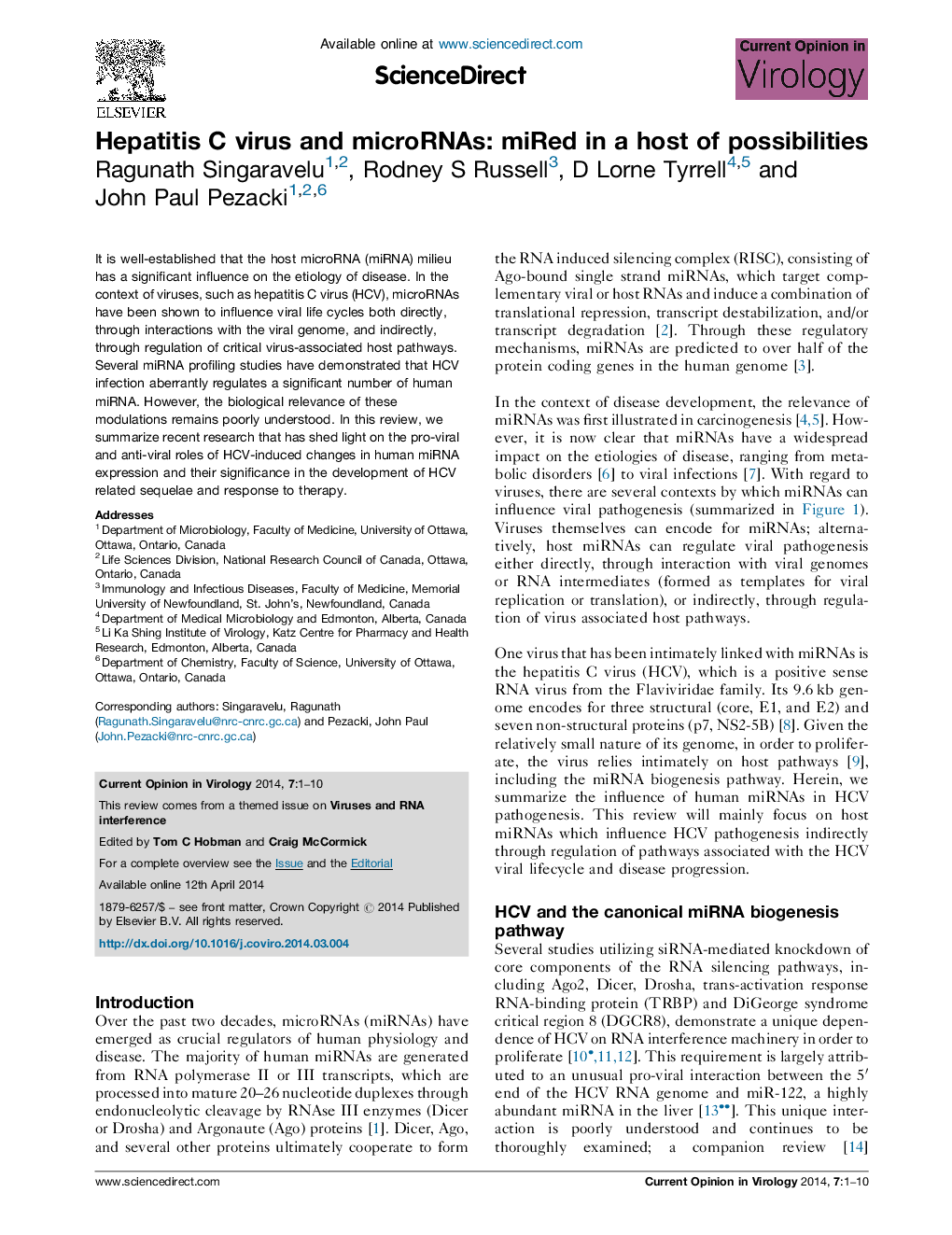| Article ID | Journal | Published Year | Pages | File Type |
|---|---|---|---|---|
| 2473302 | Current Opinion in Virology | 2014 | 10 Pages |
•Hepatitis C virus (HCV) infection induces aberrant expression of human microRNAs.•microRNAs (miRNAs) regulate HCV directly through interactions with the viral genome.•miRNAs indirectly regulate HCV pathogenesis through regulation of host pathways.•HCV-induced modulations of miRNA expression can influence disease progression.•miRNAs regulating HCV-associated host pathways have prognostic and therapeutic value.
It is well-established that the host microRNA (miRNA) milieu has a significant influence on the etiology of disease. In the context of viruses, such as hepatitis C virus (HCV), microRNAs have been shown to influence viral life cycles both directly, through interactions with the viral genome, and indirectly, through regulation of critical virus-associated host pathways. Several miRNA profiling studies have demonstrated that HCV infection aberrantly regulates a significant number of human miRNA. However, the biological relevance of these modulations remains poorly understood. In this review, we summarize recent research that has shed light on the pro-viral and anti-viral roles of HCV-induced changes in human miRNA expression and their significance in the development of HCV related sequelae and response to therapy.
